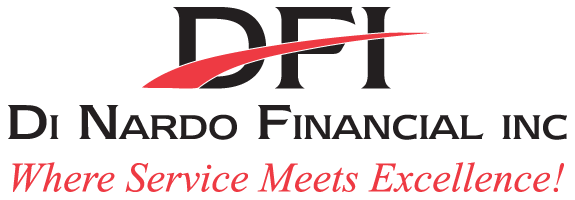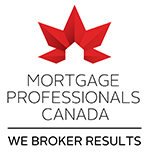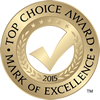Q. Why use a mortgage consultant?
Q. Are there any fees involved with a mortgage consultant?
Q. Should I wait for my mortgage to mature?
Q. What is mortgage loan insurance?
Q. What is a conventional mortgage?
Q. What is a high-ratio mortgage?
Q. What can I use for a down payment?
Q. What is the minimum down payment needed to buy a home?
Q. How much can I afford to pay for a home?
Q. How does bankruptcy affect my ability to qualify for a mortgage?
Q, What do I need to bring to my initial consultation?
Q. What paperwork do I need to provide for approval of my application?
Q. What is Mortgage Default Insurance?
Q. What is Mortgage Life Insurance?
Q. Why use a mortgage consultant?
A. By approaching one or two financial institutions and choosing from their in-house mortgage products, many consumers miss out on a wide array of mortgage options that could suit their needs better and save them a lot of money over the long term. There are literally hundreds of mortgage options available to Canadians today from a variety of lenders: chartered banks, credit unions, and trust companies, as well as other sources of funds such as life insurance companies and pension funds.
While consumers are spoiled for choice, comparing different mortgage types and interest rates on your own is a time consuming and rather intimidating task. And if you deal with a financial institution directly and your application is declined, you must start over from scratch with another institution.
An independent mortgage consultant has access to the full range of mortgage lenders and can guide you to the mortgage that suits your individual needs, at a very competitive rate.
Q. Are there any fees involved with a mortgage consultant?
A. In most instances, there are no fees involved. Mortgage consultants receive a commission from the lending institution that receives and funds your mortgage application. If you do not qualify normally due to bad credit, job instability or other unseen factors there may be a brokerage fee, but it will be disclosed to you prior to proceeding.
Q. Should I wait for my mortgage to mature?
A. No. Allow me to begin shopping around for an interest rate at least 120 days before your mortgage comes up for renewal. Lenders will often guarantee you an interest rate as much as 120 days before your mortgage matures. As long as you are not increasing your mortgage, they will cover the costs of transferring your mortgage as well. This means a rate promised well in advance of your maturity date, which eliminates any worries about higher rates and if rates drop before the actual maturity date, the lender will adjust your interest rate to the lowest it has been during the 120 days since the application was submitted.
Q. What is mortgage loan insurance?
A. Mortgage loan insurance is provided by Canada Mortgage and Housing Corporation (CMHC), a crown corporation, as well as Genworth Financial and AIG United Guaranty, approved private corporations. This insurance is required by law to ensure lenders against defaults on mortgages with a loan to value ration of more than 80%. The insurance premiums, typically ranging from .50% to 2.75% (higher for special situations) are paid by the borrower and can be added directly into the mortgage amount. This is not the same as mortgage life insurance.
Q. What is a conventional mortgage?
A. A conventional mortgage is usually one where the down payment is equal to 20% or more of the purchase price (which means a loan to value of less than 80%), and does not normally require mortgage insurance.
Q. What is a high-ratio mortgage?
A. A high-ratio mortgage is one where the amount to be borrowed is greater than 80% of the purchase price or appraised value. High-ratio mortgages generally require mortgage loan insurance provided by either CMHC, a crown corporation, or Genworth Financial or AIG United Guaranty, private insurers.
The mortgage loan insurance premium paid to CMHC, Genworth or AIG protects the lender in case of default in the event the mortgage is not repaid, and the lender has to take back the property. The benefit to the borrower is that they can purchase a home with less than 20% down, to as low as 5% down. The insurance premium is paid by the borrower and can be added directly to the mortgage amount. This is not the same as mortgage life insurance.
Q. What can I use for a down payment?
A. In most cases:
- Registered Retirement Savings Plans (RRSP's) may be used as a down payment up to a maximum of $25,000 and is not subject to income tax if repaid within 15 years.
- Gift from immediate family
- Accumulated savings
- Sale of existing home
- Equity
Q. What is the minimum down payment needed to buy a home?
A. A minimum down payment of 5% is usually required to purchase a home, but there are exceptions. For instance we have relationships with lenders that offer mortgages involving lower down payments or 'cashback' arrangements. However to qualify for this financing your credit must be clean and in good standing. Regardless of the down payment chosen you must be able to show that you can cover the applicable closing costs (such as legal fees, appraisal fees and a survey certificate when appropriate).
Q. How much can I afford to pay for a home?
A. To determine 'affordability' you will first need to know your taxable income along with the amount of any debt outstanding and the monthly payments. Assuming it is your principal residence you are purchasing, calculate 32% of your income for use toward a mortgage payment, property taxes and heating costs. If applicable, half the monthly condominium maintenance fees will also be included in this calculation.
Second, calculate 40% of your taxable income and deduct all of your monthly debt payments, including car loans, credit cards, lines of credit payments. Both of these two calculations will be used to help determine how much of your income will be used towards housing payments, including your mortgage payment. The calculations are based on lenders' usual guidelines.
In addition to considering what the ratios say you can afford, make sure you calculate how much you think you can afford. If the payment amount you are comfortable with is less than 32% of your income you may want to settle for the lower amount than stretch yourself financially. Make sure you don't leave yourself house poor. Structure your payments so you can still afford simple luxuries.
Q. How does bankruptcy affect my ability to qualify for a mortgage?
A. Depending on the circumstances surrounding your bankruptcy, generally some lenders will consider providing mortgage financing.
Q. What do I need to bring to my initial consultation?
A. Employment and income documents proving income such as a recent paystub or a letter of employment. For self employed, commissioned or seasonal workers (such as oilfield, construction, truck driving, etc.), you will need to provide 2-3 years of Revenue Canada Notice of Assessments.
Q. What paperwork do I need to provide for approval of my application?
A. While documentation requirements can vary depending on your circumstances and the lender who will be doing the financing, the following lists the most commonly requested documents:
- Employment Income Documents:
- Letter of employment
- Recent paystub
- OR 2-3 years Revenue Canada Notice of Assessments for self employed, commissioned or seasonal workers
- (if purchasing) Confirmation of Downpayment & Closing Costs:
From Own Resources
- 90 days Bank Transaction History and current balance (must show name & account number)
- Confirmation of source of any large deposits (ie. Paystubs)
- RRSP statements if using RRSP funds
Gifted Funds
- Gift letter signed by Giftor & Giftee stating funds are a gift and non-repayable
From Sale of existing home (or other asset)
- Contract of Sale
- Current mortgage statement showing balance to be paid out
If purchasing:
- Copy of Contract to purchase & listing sheet
For refinance/equity take out transations:
- Copy of Current mortgage statement showing balance & payment information
Q. What is Mortgage Default Insurance?
A. Mortgage Insurance protects a lender in case there is a default in mortgage by the borrower. In Canada this sort of insurance is typically needed for mortgage loans with down payments smaller than 20% of the property value.
Q. What is Mortgage Life Insurance?
A. Mortgage Life Insurance can pay off the outstanding balance on the insured mortgage in the event of your death.
Mortgage Critical Illness Insurance can pay off your outstanding mortgage balance in the event you are diagnosed with severe illnesses such as heart attack, stroke or life threatening cancer, providing you and your loved ones with a 'living' benefit...
Mortgage Disability Insurance can pay your mortgage payments should you become disabled and are prevented from performing the normal duties of your job due to accident or illness.









